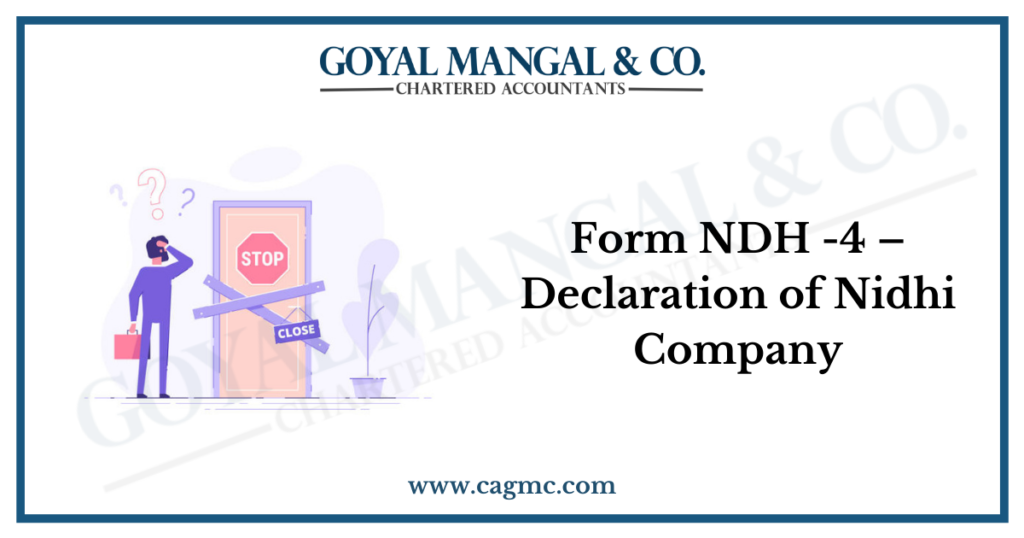
The Export Promotion Capital Goods Scheme (EPCG Scheme) was launched in the 1990s to facilitate the import of capital goods with the aim to enhance the production quality of goods and services, thereby, increasing India’s international Manufacturing competitiveness. This is a scheme relating to the import of capital goods at Zero duty. The benefit of zero duty is subject to the fulfillment of export obligations and other conditions. Let us delve deep into the Export Promotion Capital Goods Scheme, in this article.
Table of Content
- Objective of Export Promotion Capital Goods Scheme
- What are Capital Goods?
- Export Promotion Capital Goods (EPCG) Scheme
- Eligibility under EPCG Scheme
- Benefit from EPCG Scheme
- Documents required of EPCG License
- Applying for an EPCG License online
- Import of Capital Goods at 0% Custom Duty
- Capital Goods not allowed under the EPCG Scheme
- Certain Export Obligation existing within EPCG Scheme
- Conclusion
Objective of Export Promotion Capital Goods Scheme
The objective of the Export Promotion Capital Goods Scheme is to facilitate import of capital goods for producing quality goods and services to enlarge India’s Export competitiveness.
Since, we are now aware about the basic objective of the EPCG Scheme, hence, now it is equally important to have a small gist of Capital Goods before we shall delve into the Export Promotion Capital Goods Scheme.
What are Capital Goods?
Capital goods are physical assets that a company uses in the production process to manufacture products and services that consumers will later use. Capital goods include buildings, machinery, equipment, vehicles, and tools. Capital goods are not finished goods, instead, they are used to make finished goods. The Capital Goods sector has a multiplier effect and has bearing on the growth of the user industries as it provides critical input, i.e., machinery and equipment to the remaining sectors covered under the manufacturing activity.
Export Promotion Capital Goods (EPCG) Scheme
The Government of India’s Export Promotion Capital Goods Scheme (EPCG) is a programme that is a part of the Foreign Trade Policy (FTP) 2015–20. This programme, which went into effect on 1 April 2015, provides zero or reduced customs tax rates for capital goods imported for the production of export goods. Spare parts for production, such as pre- and post-production, are included in the imported capital goods. The programme also includes approved service providers or certified Common Service Providers, manufacturer exports with or without supporting vendors or manufacturers, and merchant exporters linked to supporting manufacturers (CSP).
The Zero duty EPCG Scheme is available to exporters of electronic products. It allows import of capital goods for pre-production, production and post-production (including CKD/SKD thereof as well as computer software systems) at zero% customs duty, subject to an export obligation equivalent to 6 times of duty saved on capital goods imported under EPCG scheme, to be fulfilled in 6 years reckoned from Authorization issue-date.
The concessional 3% duty EPCG Scheme allows import of capital goods for pre-production, production and post-production (including CKD/SKD thereof as well as computer software systems) at 3% customs duty, subject to an export obligation equivalent to 8 times of duty saved on capital goods imported under EPCG scheme, to be fulfilled in 8 years reckoned from Authorization issue date. The capital goods shall include spares (including refurbished/reconditioned spares), tools, jigs, fixtures, dies and moulds. Second hand capital goods, without any restriction on age, may also be imported under the EPCG Scheme.
There is a provision for early redemption, and in cases where Authorization Holder has fulfilled 75% or more of specific export obligation and 100% of Average Export Obligation to date, if any, in half or less than half the original export obligation period specified, remaining export obligation shall be excused. This is done to encourage fast track companies to accelerate exports.
The Director General of Foreign Trade’s Regional Licensing Authority grants EPCG authorizations and the EPCG programme permits technological advancement in the exports sector.
Eligibility under EPCG Scheme
The following are the eligibility under EPCG Scheme:
- Electrical Goods exporters.
- A domestic manufacturer may also supply capital goods to an EPCG Authorization Holder. Such a domestic manufacturer will be qualified for the FTP’s considered export incentive. Holders of EPCG Authorizations may choose to upgrade existing capital goods imported with an EPCG Authorization technologically. Under the EPCG plan, imports of used capital items are not permitted.
Benefit from EPCG Scheme
EPCG is intended for promoting exports and the Indian Government with the help of this scheme offers incentives and financial support to the exporters. Heavy exporters could benefit from this provision. However, it is not advisable to go ahead with this scheme for those who don’t expect to manufacture in quantity or expect to sell the produce entirely within the country, as it could become almost impossible to fulfil the obligations set under this scheme.
Also, below mentioned are some features of the EPCG Scheme:
- The EPCG authorization holder is permitted to import capital goods with a 0% or 3% customs charge. The holder of the authorization must fulfil export obligations totalling six times the amount of duty saved on the capital goods in order to qualify for the 0% customs duty. The importation of the capital items must occur within six years of the date the authorization was issued. For 3% duty, the holder of the authorization must export 8 times the amount of duty that would have been paid on importing capital goods over the course of 8 years.
- The actual user condition will determine which capital goods are imported under the EPCG programme, and the imported products cannot be sold or transferred until the export obligation is met.
- The installation of capital items and their use in production must be completed within 6 months, however the Deputy/Assistant Commissioner of Customs may grant an extension.
- Before importing capital goods, the EPCG scheme’s authorization holders must file a bond with or without a bank guarantee with customs. To fulfil the stipulated export obligation, the bank guarantee must equal 100% of the differential tariff (for merchant exporters) and 25% (for manufacturer exporters). The bank guarantee will also protect the revenue interest.
- Exports that don’t adhere to their export obligations under the EPCG scheme are still eligible for reward programmes like the Focus Product Scheme (FPS), Focus Market Scheme (FMS), Vishesh Krishi and Gram Udyog Yojana (VKGUY), and others, including Advance Authorization, Drawback, and Duty Free Import Authorization (DFIA).
- Under the EPCG plan, used products of any kind will not be accepted.
Documents required of EPCG License
Director General of Foreign Trade (DGFT), the licensing authority is the issuing authority. The following documents must be self-certified and attached to the DGFT Portal:
- GST Registration
- Chartered Accountant Self Certified Copy and Original Certificate of CA needs to be attached. IEC (Import Export Code)
- Brochure Digital Signature
- Excise Registration Proforma
- Invoice Chartered Engineer Self Certified Copy and Original Certificate
- PAN Card
- Registration Cum Membership Card
- Registration certificate from Tourism Department
Applying for an EPCG License online
The Applicant should submit an online application to DGFT to get EPCG License. Please find steps below:
Visit the DGFT Official Website- www.dgft.gov.in Login with DSC -> Select Services -> Online E-com Application Click on EPCG (0%) Fill all the details and upload the necessary documents. Kindly note that the following important points to be noted to make sure the documents are prepared error-free: IEC/RCMC should show the applicant as a manufacturer exporter. IEC/RCMC should have the address where the machine is proposed to be installed. MSME/SSI/Manufacturing proof should have the export products listed in the EPCG License. After filling all the details, submit the application. After a successful application, DGFT will issue the EPCG License
Import of Capital Goods at 0% Custom Duty
Capital goods comprise any machinery, plant, equipment, or accessories needed for production, manufacturing, or providing services, such as the following:
- Systems for Computer Software
- Tools, refractories, fittings, jigs, and spare parts for initial lining
- Catalysts for a primary charge and a secondary charge
According to the Foreign Trade Policy, capital goods include any machinery, accessories, or equipment needed to create or manufacture (directly or indirectly) commodities or to provide services. It consists of machinery and equipment for refrigeration, packing, machine tools, power generating units, and instruments and equipment for testing, quality, and pollution control. Mining, manufacturing, animal husbandry, agriculture, aquaculture, floriculture, pisciculture, horticulture, sericulture, poultry, and other industries can all require capital goods.
Benefits under the EPCG scheme are also available for capital items that have been imported for projects as specified by the Central Board of Excise and Customs.
Capital Goods not allowed under the EPCG Scheme
The following capital goods will not be permitted for import under the EPCG scheme:
- Captive Plants
- Any type of power generation set
- Electrical energy (power) supply under deemed exports
- Electrical Energy Export (Power)
- Electricity Transmission Service Export/Supply
- Power (Energy) usage in their own unit
Certain Export Obligation existing within EPCG Scheme
To import capital goods with 0% customs duty under the EPCG scheme, the following export obligations must be met:
- The authorisation holder is required to fulfil the export obligation for goods manufactured or services rendered by him/her if the EPCG authorisation has been issued.
- The export obligation should be greater than the applicant’s average export level for similar products over the previous three licensing years.
- The average export level should be within the overall export obligation period, and such export average will be the arithmetic mean of the export performance during the preceding period.
- Shipments made under drawback schemes, advance authorisation, DFIA, or reward schemes must also meet export requirements.
- The export obligation must also be met through deemed exports.
- If the holder of the authorization receives royalty payments in foreign or freely convertible currency for R&D services, he or she must fulfil the export obligations.
There also exists, certain situations, where Export Obligations are relaxed, let’s find out what are those:
- Reward for early fulfilment – If the authorisation holder has met 75% or more of the respective export obligation, the remaining export obligation will be waived. This also applies to meeting 100% of the average export obligation to date, which is less than half of the specified export obligation.
- Reduced export obligation for green technology products – In the case of green technology products, the export obligation will be reduced to 75% of the export obligation.
- Reduced export obligation for the North East Region and Jammu and Kashmir – The export obligation for Tripura, Arunachal Pradesh, Manipur, Nagaland, Assam, Sikkim, Meghalaya, Mizoram, and J&K will be reduced to 25%.
Conclusion
The Zero duty EPCG Scheme is available to exporters of electronic products. It allows import of capital goods for pre-production, production and post-production (including CKD/SKD thereof as well as computer software systems) at zero% customs duty, subject to an export obligation equivalent to 6 times of duty saved on capital goods imported under EPCG scheme, to be fulfilled in 6 years reckoned from Authorization issue-date.


